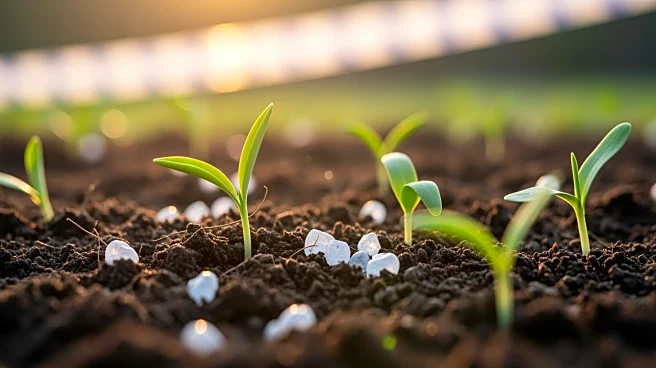Rapid Read • 7 min read
Recent research conducted by Liverpool John Moores University suggests that hydration plays a significant role in managing stress. The study found that individuals who consume less than 1.5 liters of water daily exhibit higher levels of cortisol, the primary stress hormone, during stressful situations. This indicates that chronic mild dehydration may amplify stress responses. The study involved healthy young adults who were divided into groups based on their fluid intake, with one group drinking less than 1.5 liters daily and the other exceeding recommended levels. The findings suggest that maintaining optimal hydration could be a simple yet effective tool for supporting both physical and mental resilience.
AD
The implications of this study are significant for public health, as chronic stress is increasingly recognized as a major health issue. Adequate hydration emerges as an accessible intervention that could help mitigate stress-related health problems. While hydration alone cannot address all aspects of stress, it is a straightforward and universally available strategy that could enhance stress resilience. This research adds to the growing list of lifestyle factors, including sleep, exercise, and nutrition, that influence how individuals handle life's challenges. The study highlights the importance of consistent fluid intake for maintaining overall health and reducing the risk of stress-related conditions.
Further research is needed to confirm whether maintaining optimal hydration can genuinely reduce stress-related health problems over the long term. Long-term studies could provide more insights into the relationship between hydration and stress resilience. Additionally, public health initiatives could focus on promoting adequate hydration as part of a comprehensive approach to stress management. Individuals are encouraged to monitor their hydration levels by checking the color of their urine, with pale yellow indicating adequate hydration.
AD
More Stories You Might Enjoy










